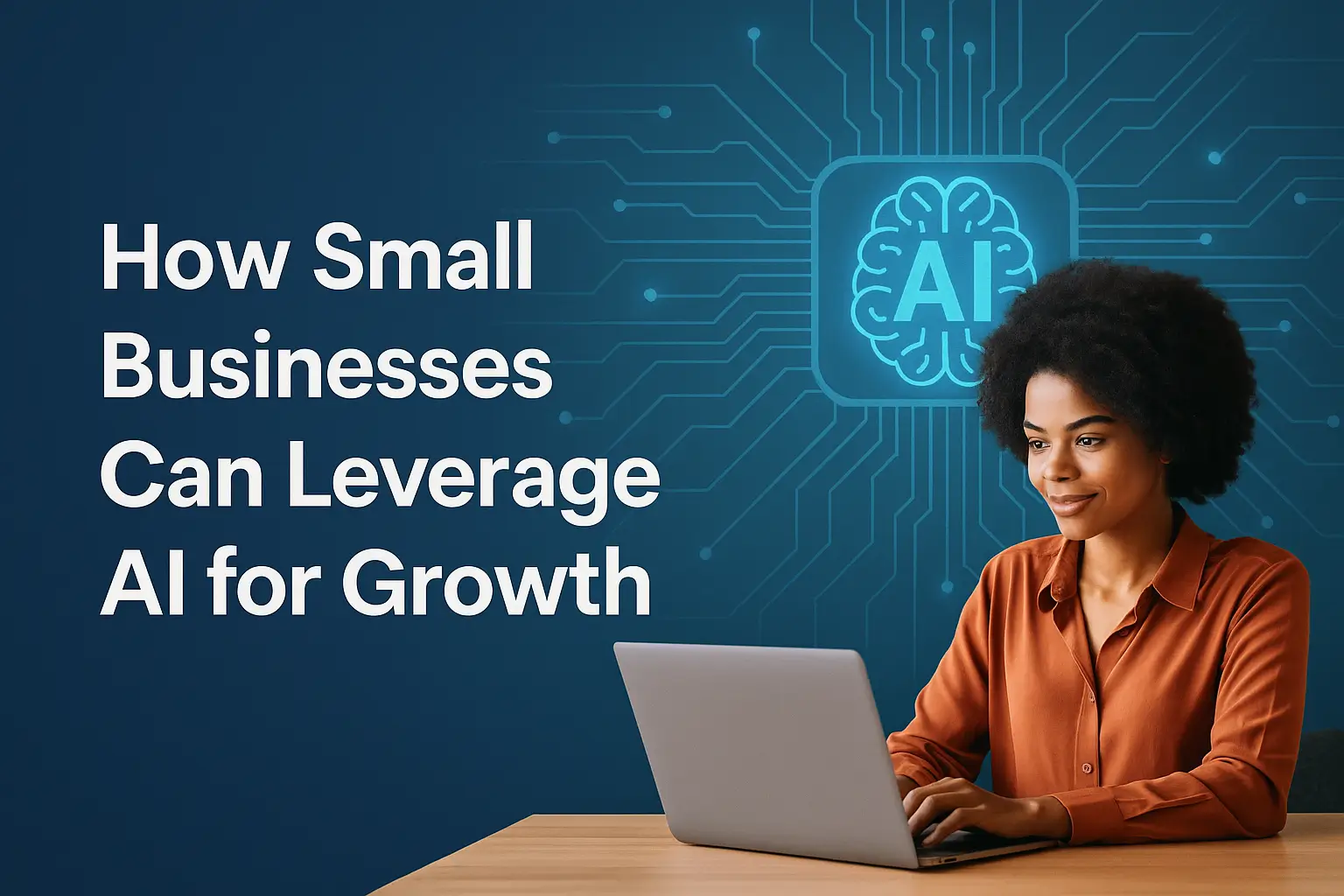Artificial Intelligence (AI) is no longer just for tech giants and large corporations. With the rise of affordable, user-friendly AI tools, small businesses now have access to powerful technologies that can streamline operations, improve customer experiences, and drive sustainable growth. Whether you’re a solopreneur, a startup, or a growing business, AI can help you compete smarter—not harder.
This article explores practical ways small businesses can use AI to grow, improve efficiency, and stay ahead in a competitive market.
Why AI Matters for Small Businesses
Small businesses often face limited resources in terms of time, staff, and capital. AI helps overcome these constraints by automating tasks, offering insights from data, and enabling better decision-making—all with minimal technical expertise.
Key benefits include:
- Cost savings through automation
- Improved customer service
- Enhanced marketing performance
- Data-driven decision-making
- Scalable operations
Practical Ways to Use AI in a Small Business
1. Automating Customer Service with Chatbots
AI-powered chatbots can handle customer inquiries 24/7, reducing response times and freeing up human staff for more complex tasks.
Examples:
- Tidio, Intercom, and ManyChat for website chat
- AI-driven virtual assistants on Facebook or WhatsApp
Benefits:
- Lower support costs
- Better customer experience
- Instant answers and multilingual support
2. Personalized Marketing and Email Campaigns
AI helps tailor your marketing messages based on customer behavior and preferences.
How:
- Email platforms like Mailchimp and ActiveCampaign use AI to optimize send times, subject lines, and content.
- AI tools like Copy.ai or Jasper create ad copy, product descriptions, and blog intros in seconds.
Outcome: Higher open rates, click-throughs, and conversions.
3. Inventory and Supply Chain Optimization
AI can predict demand, optimize stock levels, and reduce waste by analyzing sales trends, seasonal behavior, and supplier data.
Tools: QuickBooks Commerce, Zoho Inventory, and AI-powered POS systems
Benefits:
- Avoid stockouts or overstock
- Reduce holding costs
- Improve delivery timelines
4. Smart Financial Management
AI-based accounting software automates bookkeeping, tracks expenses, and offers real-time financial insights.
Platforms: Xero, QuickBooks with AI integrations, Bench
Benefits:
- Automated invoice generation
- Expense categorization
- Real-time cash flow forecasting
5. Improving Social Media Engagement
AI tools analyze what types of posts perform best and suggest optimal times to publish, hashtags to use, and ways to increase engagement.
Tools: Lately.ai, Predis.ai, Buffer with AI insights
Benefits:
- Better content strategy
- Time savings in content creation
- Higher audience engagement
6. AI-Powered Analytics and Business Intelligence
AI tools provide easy-to-read dashboards that highlight trends, customer behaviors, and business opportunities.
Examples:
- Google Analytics with AI insights
- Tableau and Power BI for visual analytics
- Zoho Analytics for small businesses
Outcome: Make informed decisions without hiring a data analyst.
7. Enhanced Hiring and HR Support
AI tools help screen resumes, schedule interviews, and assess candidate fit based on your business needs.
Platforms: BreezyHR, Workable, and HireVue
Benefits:
- Faster hiring process
- Less time spent reviewing resumes
- Improved team fit and retention
Affordable AI Tools for Small Businesses
| Tool | Use Case |
|---|---|
| ChatGPT | Content creation, customer scripts |
| Jasper | Copywriting and blog generation |
| Tidio | Chatbot for websites and e-commerce |
| Pictory | Convert blog posts into short videos |
| Grammarly | AI writing assistant and proofreading |
| Lumen5 | Video creation from text |
| Zoho CRM | Sales automation and customer tracking |
Tips for Getting Started with AI
- Start Small: Choose one area (like email marketing or customer service) to apply AI.
- Use Free Trials: Many AI platforms offer demos or free versions—test before you invest.
- Train Your Team: Provide basic training or tutorials to help your staff adopt new tools.
- Evaluate ROI: Track performance improvements like saved time, increased sales, or reduced costs.
- Stay Updated: AI is evolving rapidly—follow updates and trends relevant to small businesses.
Common Myths About AI in Small Business
- “AI is too expensive.” Many tools are free or offer low-cost plans for small teams.
- “I need a tech background to use AI.” Most tools are built for non-technical users.
- “AI will replace my team.” AI enhances your team by handling repetitive or time-consuming tasks.
Final Thoughts: Small Business, Big Potential
AI is no longer out of reach for small businesses. With the right tools and strategies, you can harness its power to save time, delight customers, and grow smarter. Whether you’re just getting started or ready to scale, AI can be a powerful partner on your journey to success.
